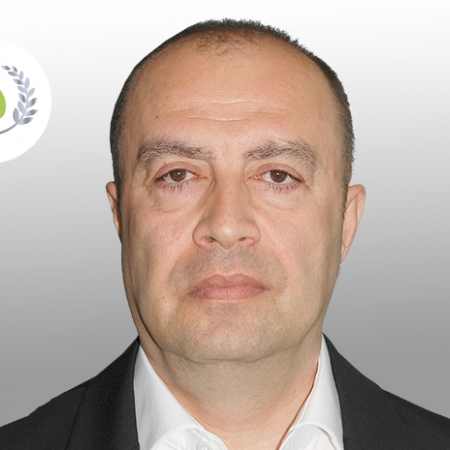July 12, 2023
After his recent appointment to the board, Fethi Sonmez sat down with GPC to share his insights on the upcoming harvest, Türkiye’s fiscal health, and why Canadian imports will be subdued in 2023.


Last year was not an average year – interesting both on the negative and the positive side. The positive side is that Armada is growing and expanding and we are investing in one of the biggest processing plants in Türkiye. This is the third location for Armada Foods and is already underway.
The hardest thing last year was the state of the Turkish economy in general, due to the monetary policy of the Turkish government pushing down the value of the Turkish lira. This was placing the burden on all of the exporters and was certainly a negative for Armada foods as an exporter.
The big change in the pulse industry last year was the rocketing demand that was completely unexpected. For example, the Turkish importation of red lentils jumped up to 550,000 tons, with 250,000 tons going to Iraq – this is very unusual. Historically, the Iraqi government has distributed foods to their citizens free of charge – 50 years it has been like this, but what is very clear is that they are miscalculating their consumption. Iraq usually buys around 60-70,000 tons of red lentils and has never bought 250,000 tons in its entire history!
Proof that they are miscalculating is that they are now selling red lentils back to us in Türkiye, they bought at $1000/ton and now they’re selling back to us at $550/ton. It’s weird to think they miscalculated, but it's true.
Of course, let me expand a bit on some of the things I said at the Pulses 23 red lentils panel. I think I can be more positive than I was then, as red lentils look fine and I think we'll get a very decent crop – 400,000 tons plus. Alongside the drop in Turkish currency, this stronger crop is why Turkish red lentil prices have come down. The harvest for chickpeas and white beans hasn’t started yet, but we can say for sure there will be a yield loss on chickpeas because of the heavy rains. I can't be concrete about the numbers, but my prediction is that the Turkish chickpea crop will be at least 20% down over last year.
“Alongside the drop in Turkish currency, this stronger crop is why Turkish red lentil prices have come down.”
As for white beans, Armada Foods is one of the biggest sellers of white bean seeds for planting in Türkiye, so I can say clearly that white bean production will be down by around 30% or more.
It is important to note that one of the biggest problems in the pulses industry in Türkiye is the regulations imposed by the Turkish government on exporters or importers – for example, you can export red lentils if you import prior to exportation. Exports on chickpeas are subject to a quota, and the export of white beans from Türkiye is also currently banned.
We are expecting these restrictions to be lifted very soon because Türkiye needs hard-currency. I made some phone calls at a ministerial level last week and the signals I'm receiving are that the restrictions are going to be removed shortly.
Many Turkish pulse traders, at least the biggest ones, are more re-exporters than importers – only around 25% of our business is importing. In fact, a weakened Turkish lira helps traders because we export more, and Turkish domestic consumption is not price elastic – people don't stop consuming beans if it is more expensive. Perhaps they consume 950g instead of a kilo, but compared with less-developed countries we have better economical conditions and a bigger middle-class, so consumption isn't affected much by currency devaluation.
Yes, Türkiye will be buying less, but not for economic reasons but because we have a better crop and there won't be a repeat of the one-off demand we saw with Iraq. There is no relation with this drop in imports and the devalued currency.
In a normal year, Türkiye imports 350,000 tons from Canada, but last year it went up to 550,000 tons. This year I think we will see 350,000 or less, maybe 300,000 tons.
A depreciation in the currency is always expected before an election – this is normal all over the world as before elections there is always a pre-election economic policy they will be implementing. Now that's over, although we do have another local election next March.
We're not expecting such tight economic sanctions or policies from the government as we had before the elections, but I would say that ?im?ek is a very talented, professional and internationally well-known minister, and things are getting better and better everyday in Türkiye, but it will take time. Don’t forget, Türkiye is very familiar with high inflation – we know how to manage it as traders. In my view, over the next year there will be some mild corrections in the currency, but after March you will see Türkiye in very good economic conditions.
We haven't seen the positive benefits of having a pro-market minister like ?im?ek yet, but we are hoping to see them, and we’re predicting we will see them.
“We haven't seen the positive benefits of having a pro-market minister like ?im?ek yet, but we are hoping to see them, and we’re predicting we will see them.”
If the market is getting narrower, nobody loses and nobody wins. Especially with commodity traders – more money means better prices and more demand. Special crops trading is very similar to commodity trade, so cheaper money means more trading demands and more international trade.
Until the interest rates of the central banks all over the world stop rising, we won't see big positioning profits, demand, or activity in the market. We'll see more mercantilist approaches – you produce, you consume. I don't think that the market will be enthusiastic in the coming few years.
Yes, it definitely is. It's a big problem. In Türkiye we have the currency devaluation issue, but those countries have a hard-currency availability problem – Türkiye has the hard-currency whereas they don't. This means that in those countries there are two markets – a black market situation where there is a market price, a bank price, and then also restrictions.
There are always delays in payments from those countries and even some defaults because they aren't finding enough currency to pay. This is definitely affecting exports from Türkiye into countries like Sudan, Egypt, Algeria, Libya, and Pakistan.
The most important thing this year for us is to finish completing our investments. We are making a $20 million investment in solar panels for our processing plants. We're going to produce our own consumption of energy and will sell the excess to the government – everything is already financed, planned, and it should be ready to operate in six months time. Armada Foods is carbon zero at the moment, but soon we will be carbon negative!
Disclaimer: The opinions or views expressed in this publication are those of the authors or quoted persons. They do not purport to reflect the opinions or views of the Global Pulse Confederation or its members.